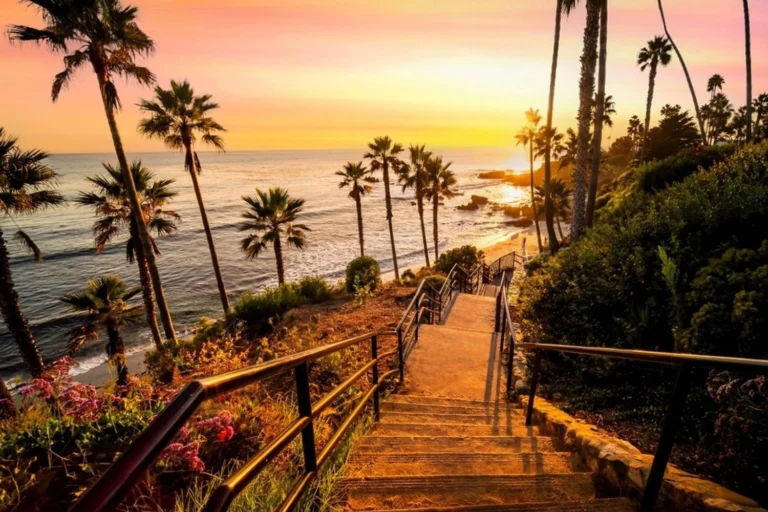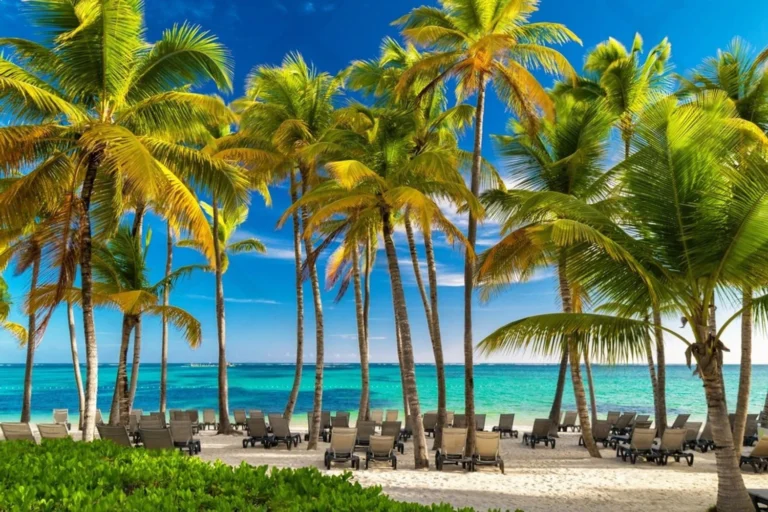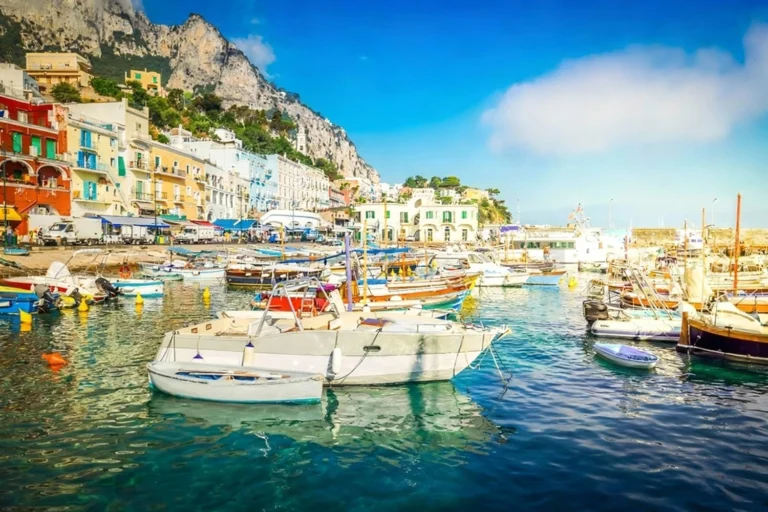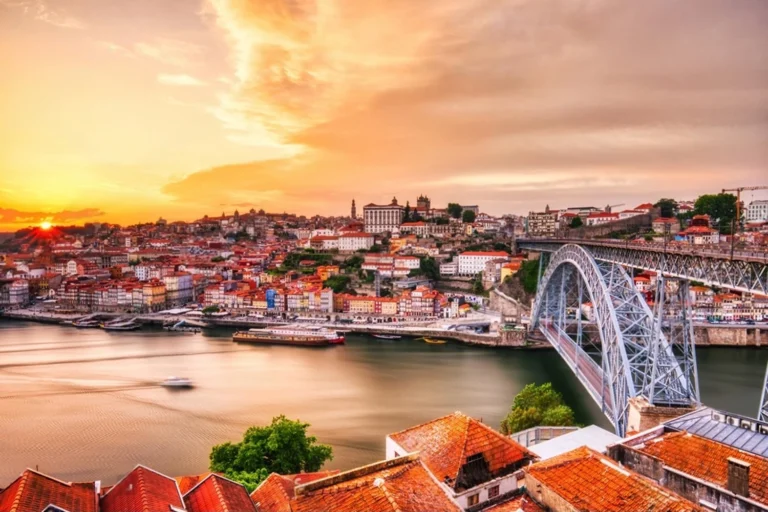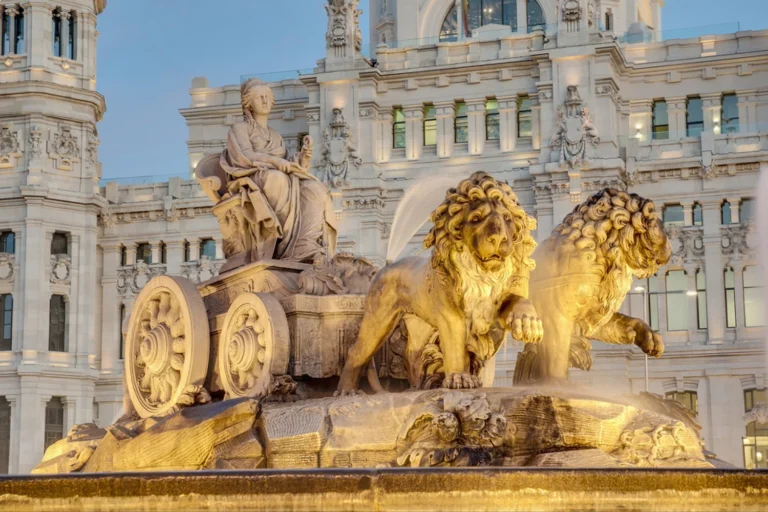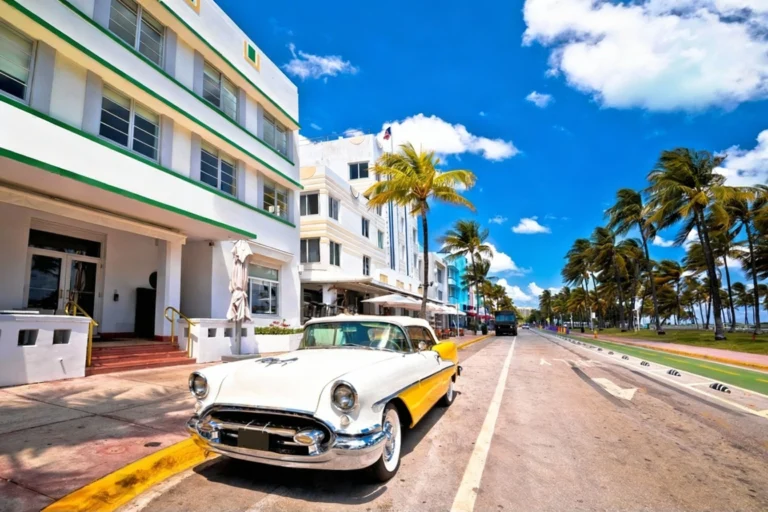Bahamas: 30 Curious Facts Beyond the Turquoise Calm
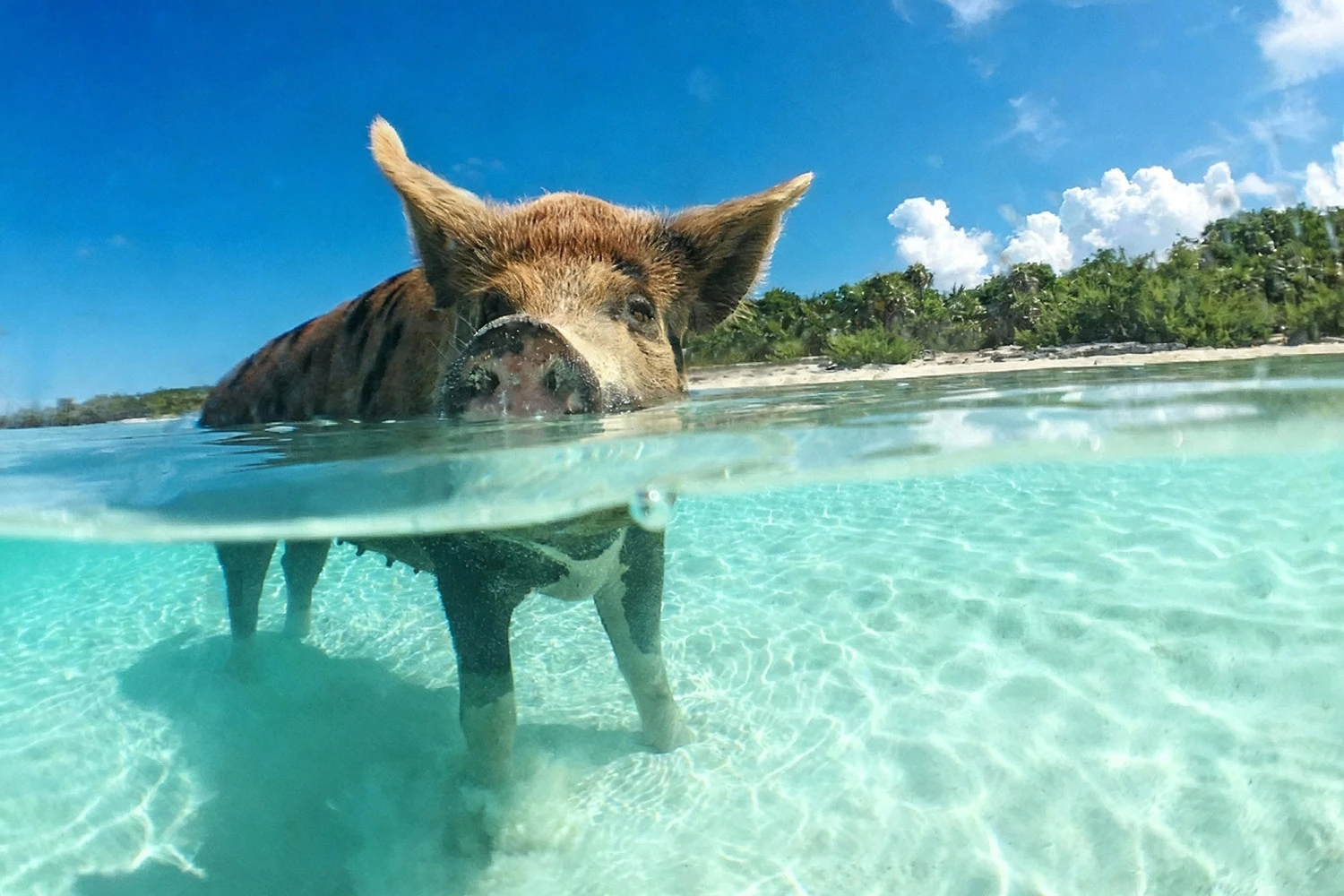
The Bahamas feels like a song the ocean never stopped singing. The air tastes of salt and sun, and the waves seem to speak in a language older than words. Beyond the bright beaches and postcards, there’s a quiet rhythm – the rustle of palms, the laughter carried on the wind, the pulse of island life unhurried and true. Stay long enough, and you’ll feel it too: the Bahamas isn’t just seen, it’s felt, deep and softly, like a heartbeat beneath the tide.
More Than One Island: A Lifetime of Beaches
I laughed when a fisherman told me you could live a whole life here and still never sleep on every beach. He wasn’t exaggerating someone later mentioned the Bahamas isn’t one island at all, but more than 700 islands and 2,400 coral cays, with only about 30 of them inhabited. I remember staring out at the water and feeling small in a good way, like the world had opened up into a blue constellation you could wade through.
What got me was how each place felt distinct, almost like neighborhoods that forgot to be connected by roads. The hello sounded different from dock to dock, the pace shifted with the tide, and even the hush at dusk carried its own rhythm. Each island hums its own small song some bright and brassy, some slow as a hammock and you start tuning your ears without meaning to.
And the conch salad changes with the shoreline. One bowl was all lime and bite, another came with slivers of orange so sweet it tasted like sunlight, and somewhere else a touch of goat pepper sent a warm wave across my tongue. I loved how those little variations made the whole place feel more human: recipes as accents, flavors as fingerprints. It made that fisherman’s line feel true there’s no way to sleep on every beach, but you can let a handful of them linger, and carry their voices home.
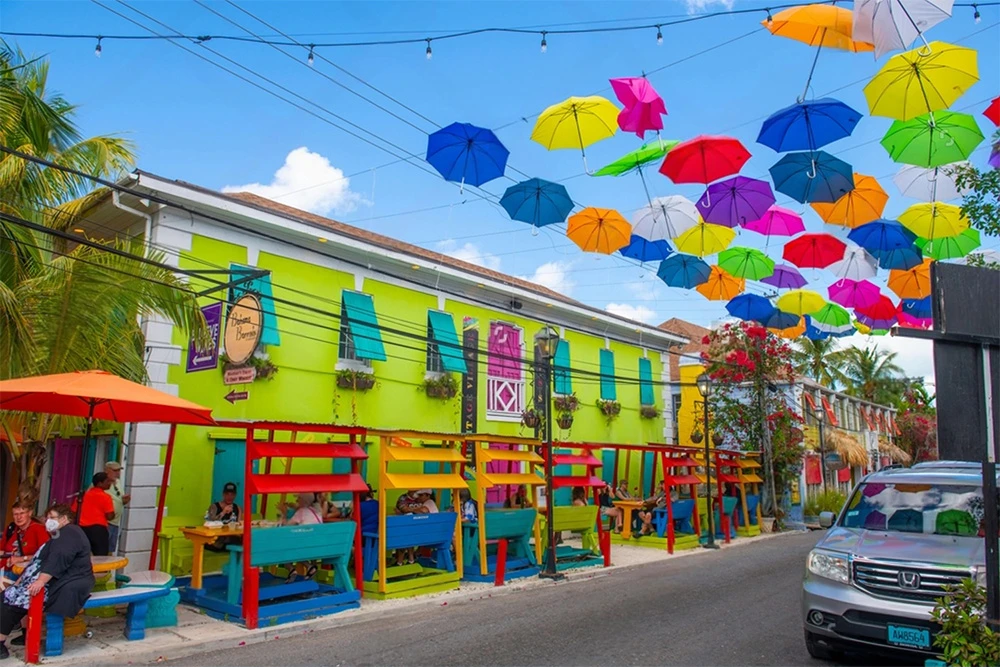
Mystery stones form a road beneath the sea
At first you think it’s a trick of light. Then the blocks come into focus squared and tidy, lined as if someone meant it. The water hums a cool blue, the sand lifts in little puffs. A ribbon of stone runs straight toward the deep, like a highway easing into the sea’s secrets. People call it the Bimini Road, and the name feels exactly right.
Some swear it’s the edge of Atlantis, and even seasoned divers shrug and say it looks man made. In North Bimini, stories like that simply belong; nobody rushes to prove or dismiss them. I remember a small shiver of wonder, not fear, the feeling that lingers when the world refuses to explain itself. Maybe that’s the gift here to meet an ancient question and let it be. The sea keeps a secret the way a grandmother keeps a beloved story, close and with a soft smile.
https://en.wikipedia.org/wiki/The_Bahamas
When Tropical Air Caught a Winter Whisper
I still smile thinking about a day that felt impossible. Back in 1977, a freak cold front slid across the water and, for a few breathless minutes, snowflakes drifted over Freeport – tiny white specks landing on open palms like borrowed confetti. The air carried that clean, metallic chill you taste before rain, the sea stayed salt warm, and people just stared, half laughing, half stunned, trying to believe what their hands were telling them.
Friends say they remember the hush first, then the burst of laughter. No drifts, no crunch underfoot, just momentary crystals on skin and porch rails, a shiver that made the morning coffee taste sharper. Ever since, it’s one of those stories everyone here keeps close, a small reminder that even familiar mornings can surprise you.
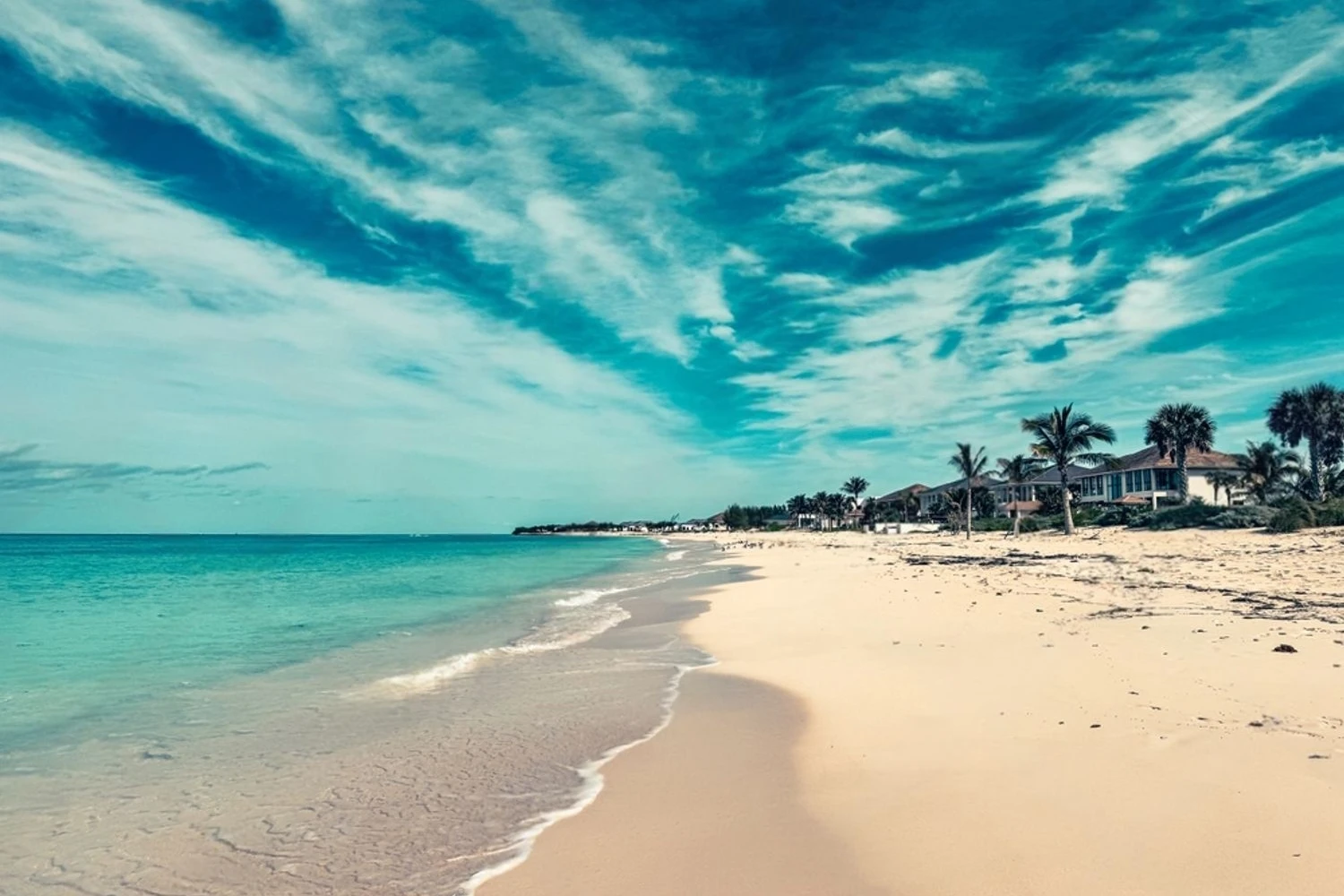
A 663-foot plunge into hush and myth
I remember my voice dropping without trying when the water turned from turquoise to a sudden, velvety blue – Dean’s Blue Hole looked like an ink stain on a turquoise page. Knowing it’s one of the deepest blue holes on Earth makes your chest flutter a little; the breeze smells like salt and sun warmed limestone, and even the gulls seem to circle more slowly, as if they, too, are peering into something ancient.
People nearby tell it simply: mermaids live down there. The scientists with us used a different word – thermoclines – for the way the blue folds into colder bands. On Long Island in the Bahamas, nobody argues about the name; everyone just falls quiet at the edge. Numbers stay on the surface; 663 feet becomes less a measurement than a feeling, and for once, both story and science seem to point to the same dazzling truth – some places are built to make us believe.
Where pink sand blushes beside turquoise waves
I didn’t expect a beach to blush, but it does. On Harbour Island, the rose tint is real as seashell grit born from crushed coral and microscopic shells that tint each grain with a quiet, rosy sparkle. In the sun, the sand looks softly luminous, the kind of color that makes you slow down and breathe a little deeper, salty air warm on your lips.
At sunset, the pink deepens to a cotton candy glow against the clear, turquoise water, and the whole shoreline turns pastel, almost unreal. I remember feeling a calm settle in, like the day had exhaled; it’s science and softness sharing the same moment. Maybe that’s why it lingers with you proof that small, almost invisible things can color an entire coast, and gently change the way you see the world.
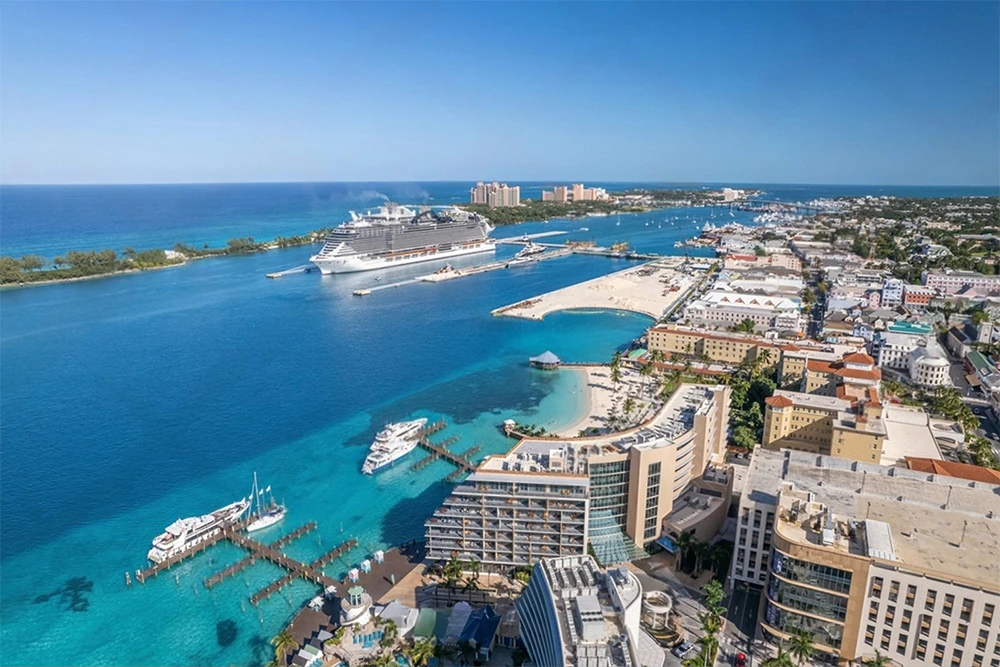
Swimming with mystery pigs on their own island
I didn’t expect to be out charmed by a snout. The sea was a sheet of turquoise glass, and then came the soft grunts, the whiskery nudge, the hopeful eyes tracking a crisp apple. I remember laughing at how plainly they preferred the fruit to any of us, like our compliments were just background noise to the crunch they were waiting for. On that island, they’re the hosts and we’re only guests.
Everyone has a version of how they arrived: some swear shipwreck survivors left them behind; others say the pigs swam away from a burning boat. No one really knows, and that mystery feels right for the Exumas easy, salt warmed, a little improbable. The stories drift around like gulls, unbothered by proof, and the pigs keep setting the pace on their beach, reminding you that joy doesn’t need an origin story, just a sunlit morning and something sweet to bite into.
Echoes of the Lucayans in whispering pine forests
Sometimes the wind in the pines sounds like a long memory. The air turns resin sweet, light flickers through the needles, and locals say that’s when old voices drift through. I remember pausing under that thin shade and feeling something soft and steady, almost familiar.
They were the Lucayans people who grew cassava in sandy gardens and knew the clear shallows intimately. In 1492 the ships arrived, and everything turned. Within a few decades, every Lucayan was gone, enslaved by Europeans, and the islands fell strangely quiet. That truth clings to the sunshine in a way I can’t ignore.
Here in The Bahamas, I think about how stories remain, even when the people are taken. When the breeze moves through the pines, I try to listen there’s a hush, resin sweet and salty, and it feels like respect to stand still for a moment. I carry a quiet gratitude for the lives that shaped this light and these waters, and for the reminder that joy and sorrow can stand side by side.
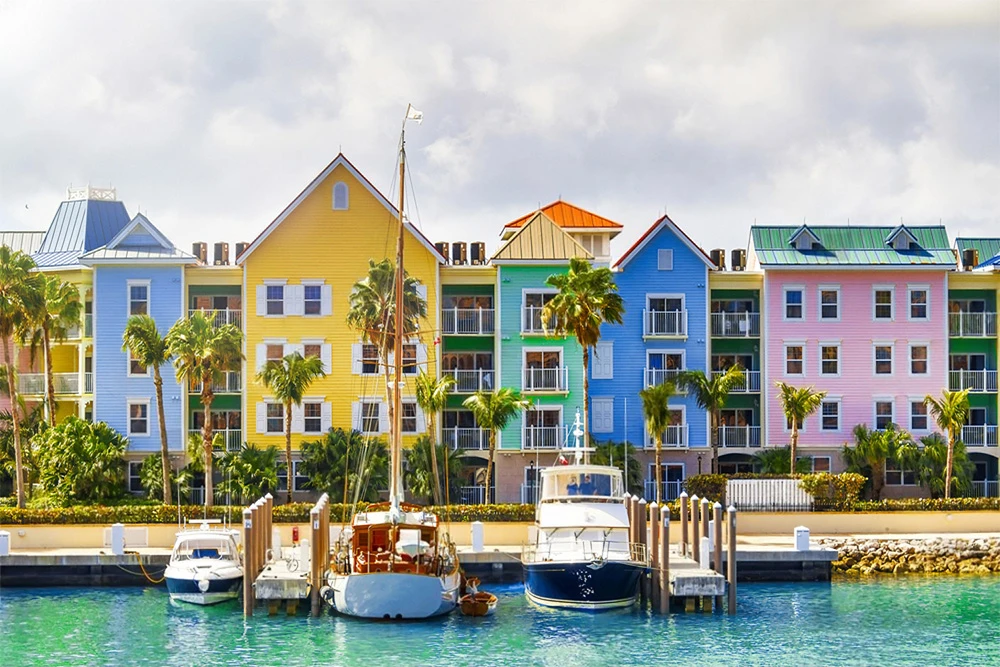
A tiny summit above an ocean of flatness
I remember laughing softly at the idea of a “mountain” here. The land rises with a shrug; my knees hardly noticed. The horizon unrolled like linen, salt bright and endless, and at the top waited something that felt more secret than grand.
The Hermitage small, stone, weather smoothed perches on the crown of Mount Alvernia. Father Jerome, a hermit architect with a stubborn tenderness, built it as if he were tucking a prayer into the wind. Inside, the walls are cool and the light thin and gold; outside, the breeze lifts the scent of salt and sun warmed stone.
Only in the Bahamas could the sky feel so close at just 207 feet. I loved the quiet audacity of it the highest point being a place made for smallness and grace. It made me think that awe doesn’t need altitude; sometimes the tallest thing is the feeling that rises in you.
Where the sea hums through a hidden throat
At first I thought it was the wind, but the note came from below, a low, steady hum rolling through the rock and into my ribs. The air tasted of salt and sun warmed rope; gulls circled like commas above the boats, then went quiet. Down on Andros, the fishermen just tilt their heads and smile. As each wave folded itself over a dark mouth in the water, the sound swelled and thinned, like a giant conch breathing soft, eerie, and oddly tender.
They say it’s the sea speaking back, and for once I didn’t need an explanation. I remember standing there, feeling the shore loosen its usual edges, as if the place itself wanted to be heard. There was something relieving about it: a song with no performer, only tide and cavern and trapped breath finding a note. In that humming, I felt the island’s calm confidence the way people learn to live by rhythms, not clocks and the quiet reminder that we’re the ones passing through, if we remember to listen.
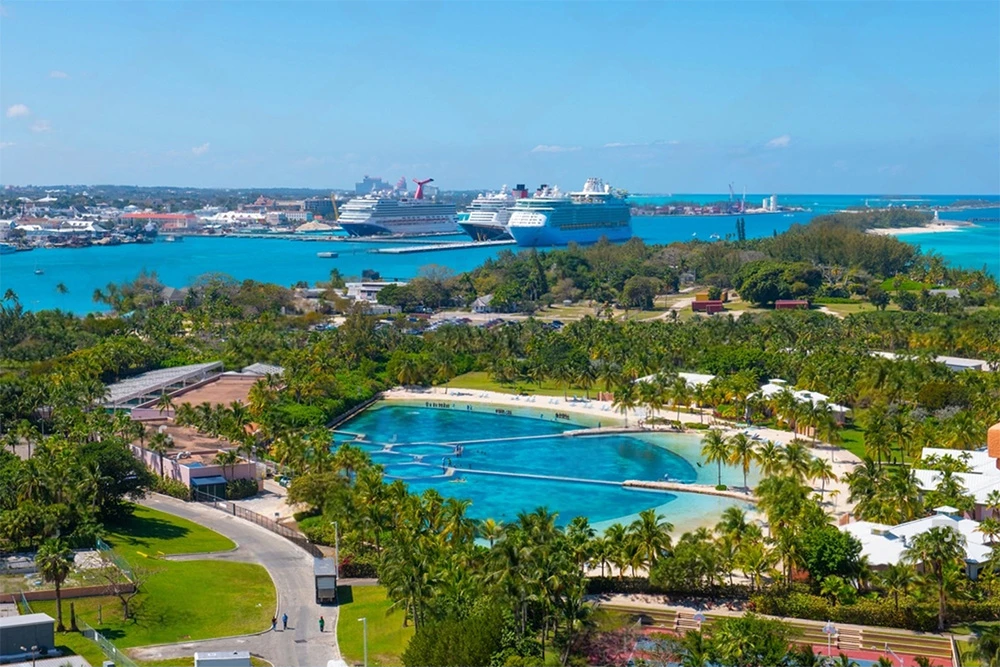
A rum soaked republic led by Blackbeard and Vane
Hard to believe these calm, blue shallows once answered to pirates. Some days the breeze carries a ghost of oak barrels and sun‑warmed rope, and the gulls sound like raucous toasts. They called it the Pirate Republic, with Blackbeard and Charles Vane presiding while taverns rose along the waterfront; bribes slid across sticky tables, and someone always had a quill to draft rough “laws” between rounds. It was democracy on sea legs rowdy, improvised, and just a little drunk.
In Nassau, that old swagger has softened into charm, but the backbone remains: a defiant friendliness, a habit of welcoming the unruly and the new. I remember pausing in the late heat, smiling at the thought that this sunny harbor once argued its way toward order with rum, wit, and a shared sense of risk. Maybe that’s why the place still feels like an open door you arrive as a stranger, and there’s already a chair waiting at the table.
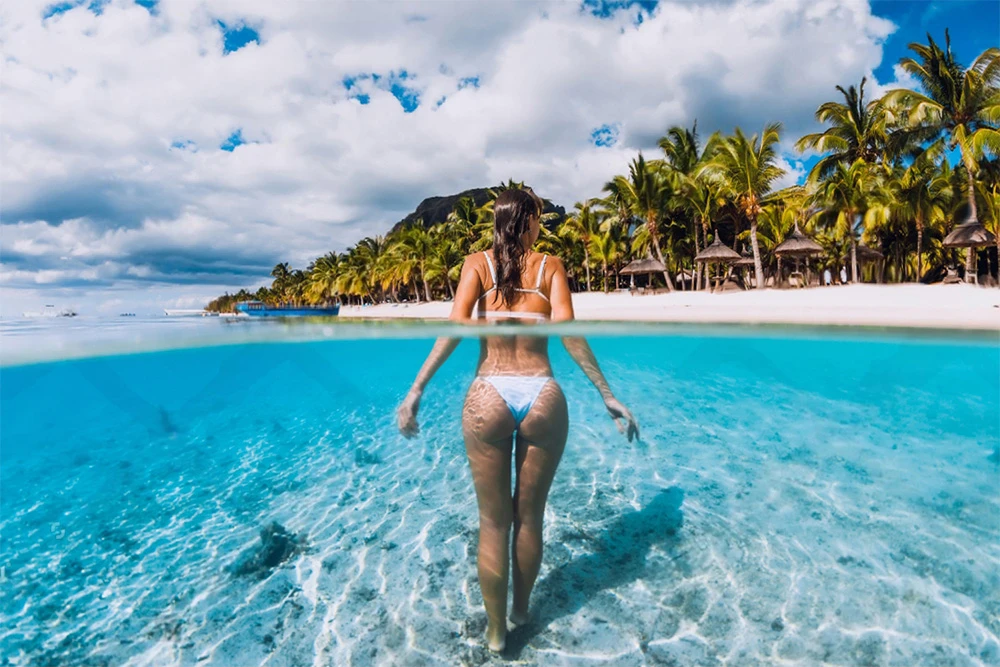
Where compasses spin at Blackbeard’s crumbling lookout
I remember the air feeling slightly off up there, like the breeze had learned a pirate’s sleight of hand. People swear compasses spin at Blackbeard’s Tower, and you start to believe it; the stone is warm with old sun, the sea smell climbs the walls, and somewhere a gull gives a ragged cry that makes the moment feel tilted.
Rumor says his treasure still lies somewhere below, and locals nod, insisting the needles whirl because his ghost is on watch. Near Nassau, that story passes from mouth to mouth like a coin, not for its value but for the thrill of its weight; what stays with me isn’t the promise of gold, but the way the place hushes you into listening, as if secrets can be heard when the wind turns just so.
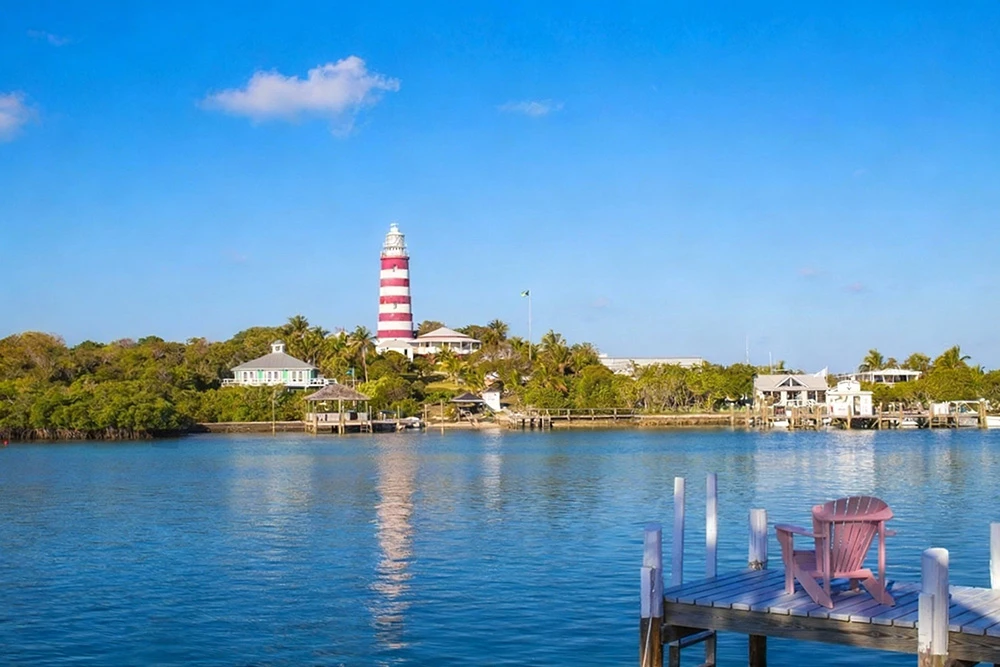
Bimini’s ring of stones and saltwater whispers
There’s a hush that arrives with certain mysteries. The water went clear and quiet, and beneath the blue off Bimini lay a circle of massive boulders, as if they’d chosen their places. Sun warmed my shoulders; the surface shivered; little fish flickered like coins between the gaps.
People can’t agree what it is some call it the bones of an ancient temple, others say it’s coral and currents doing slow, patient work. I remember liking the argument itself, the way the sea let both stories breathe. It felt honest, somehow, that the ocean could cradle two different truths at once.
Looking down, time loosened, like a clock with no hands. The whole scene felt both bold and tender, a reminder that not every beautiful thing needs to explain itself. I left with salt on my lips and an open question I didn’t mind carrying.
From Civil War smuggling to Prohibition’s rum lit nights
I never expected such quiet water to hide such wild stories. Back when the American Civil War split the map, traders out here made fortunes moving cotton and guns to both sides without blinking. It wasn’t romance so much as survival with a sharp mind, an island kind of pragmatism that smelled of tar, salt, and fresh coin. I remember someone saying that opportunity came and went with the boats, and in the hush of a moonlit harbor, it felt exactly right.
Then came Prohibition, and the islands boomed all over again rum running by lantern light, engines coughing, ice clinking against glass as deals slid across decks. In Nassau, you can still feel a slyness in the air, a playful defiance that turns scarcity into celebration. The sea was their accomplice, and the parties were a promise that even in tight times, people will find a way to laugh; it still lingers in the warm night, somewhere between the clink of ice and the hush of waves.
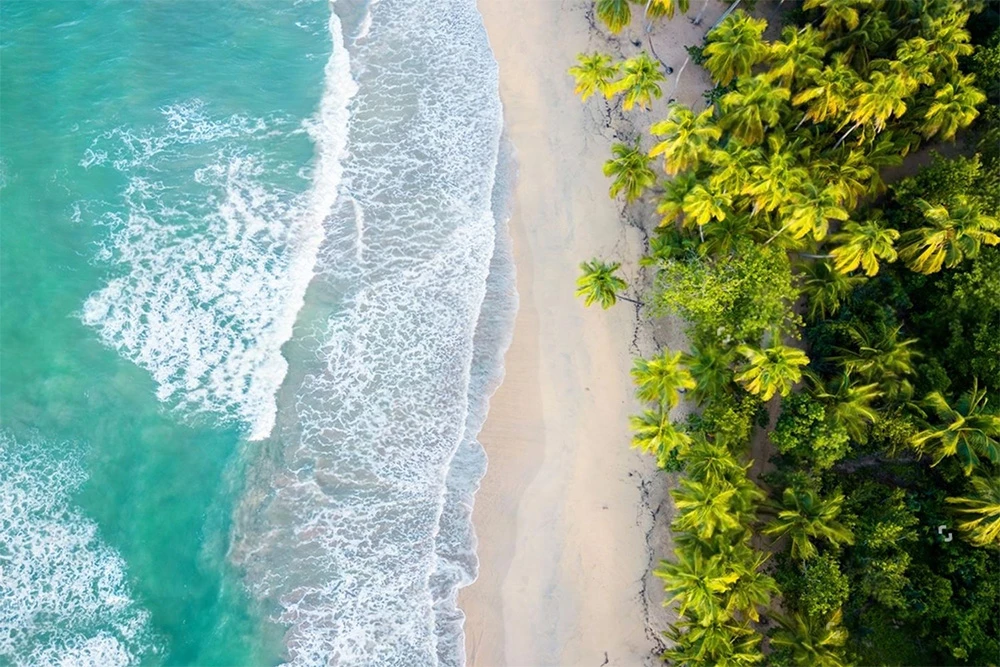
Courage older than independence: Pompey’s Exuma uprising
It always surprises me how the sea can soften a hard story; back in 1830, in Exuma, enslaved people rose under a man named Pompey, refusing an order that would tear families apart. His defiance traveled shore to shore, steady as a drumbeat that wouldn’t quiet.
Now his name is spoken with respect, a national hero here, his courage older than independence. I remember the air feeling salt heavy and bright, and thinking how bravery sometimes begins with a single word: no. The rustle of casuarina, the hush of low tide, the warmth on your skin – they make the story feel close, and you understand why people here hold it with quiet pride.
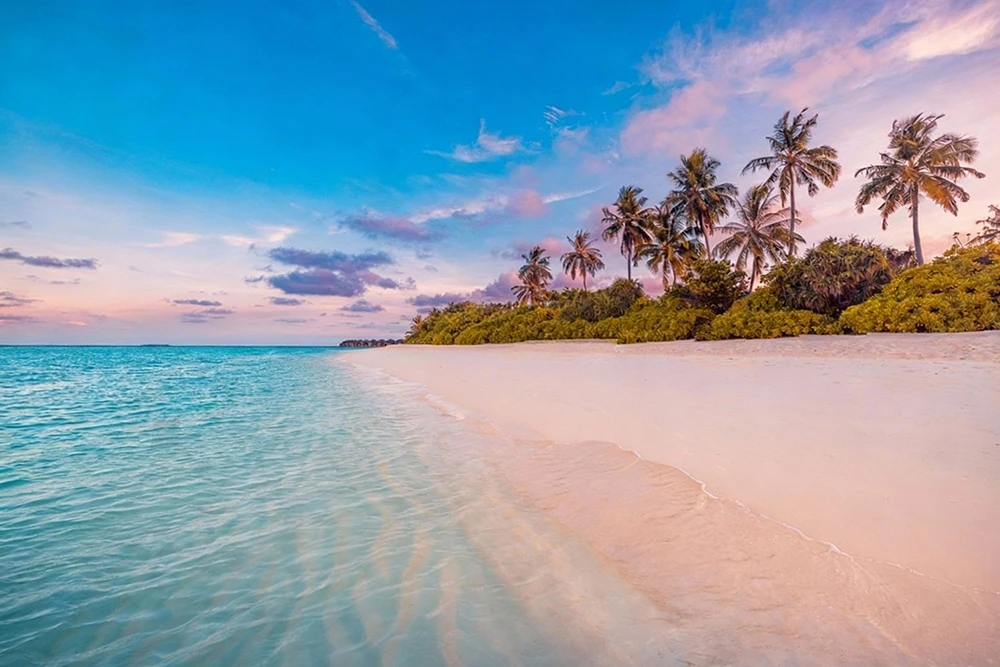
Carnival, protest, and art share one heartbeat
I didn’t know cardboard could glow until a Junkanoo costume brushed past feathers shaking, glue and paint catching the streetlights while the drums thudded through my chest. Along Bay Street in Nassau the air vibrated as thousands of neighbors filled the road, moving together until the first thin line of sunrise lit the storefronts.
That’s the part that gets me every time: it’s carnival, protest, and art all at once. You hear it in the rhythm joy loud enough to rattle windows, with a current of defiance underneath, steady as a tide. I remember a woman beside me flicking a feather from her cheek and laughing, and I felt how these masterpieces cut from cardboard carry both celebration and memory. When the sun lifted over the harbor, the drums eased, but the beat lingered in the streets.
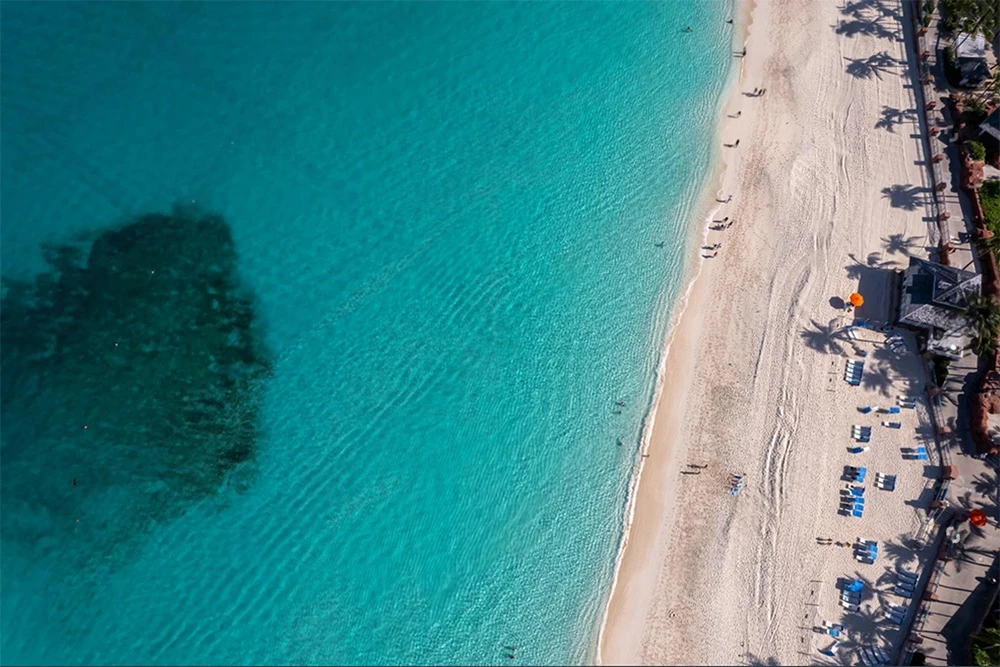
Learning the gentle patience of Bahamas time
I laughed the first time someone said “Bahamas time,” said with a smile that calmed the whole afternoon. Around here, buses arrive when they can, lunches wander past noon, and I’ve heard of weddings starting hours after the invite. No one is ruffled. Everything moves to the tide’s quiet rhythm, and the day somehow feels larger.
Once, waiting for a bus in Nassau, the air was full of salt and ripe guava, and somewhere a radio sent steel pans chiming into the heat. A man told a story that kept strangers grinning; a woman nearby hummed a hymn; a breeze carried the smell of frying snapper. I stopped checking the time and noticed how easily laughter fills the minutes.
That’s the gift here: it isn’t lateness, it’s trust. Plans are a rough outline and the calendar loosens its collar, because things happen when they’re ready. Meals arrive when the food is ready, vows wait for the golden light, and somehow everything important is right on time.
Whistling after dark summons chains and fiery eyes.
I remember one warm porch night when a tune rose to my lips, and a friend gave me a soft shake of the head. In the Bahamas, you don't whistle after dark. The air was salt sweet and still, the kind of quiet that makes you listen.
They talk about rolling calves – fiery eyed spirits that drag chains through the night, and how a whistle can draw them closer. Kids learn early that after sundown, your voice belongs to the daylight; you keep it low so the ghosts pass by. It's eerie and oddly comforting, how the habit spreads from porch to path.
What I loved was how the hush lets everything else step forward: the crickets, the shy lap of waves, a neighbor’s laugh drifting and fading. The night holds its breath, and you feel yourself belong to it a little more. Maybe that’s the secret – not fear, but respect – the way stories travel like salt on the air and teach a place how to keep its peace.
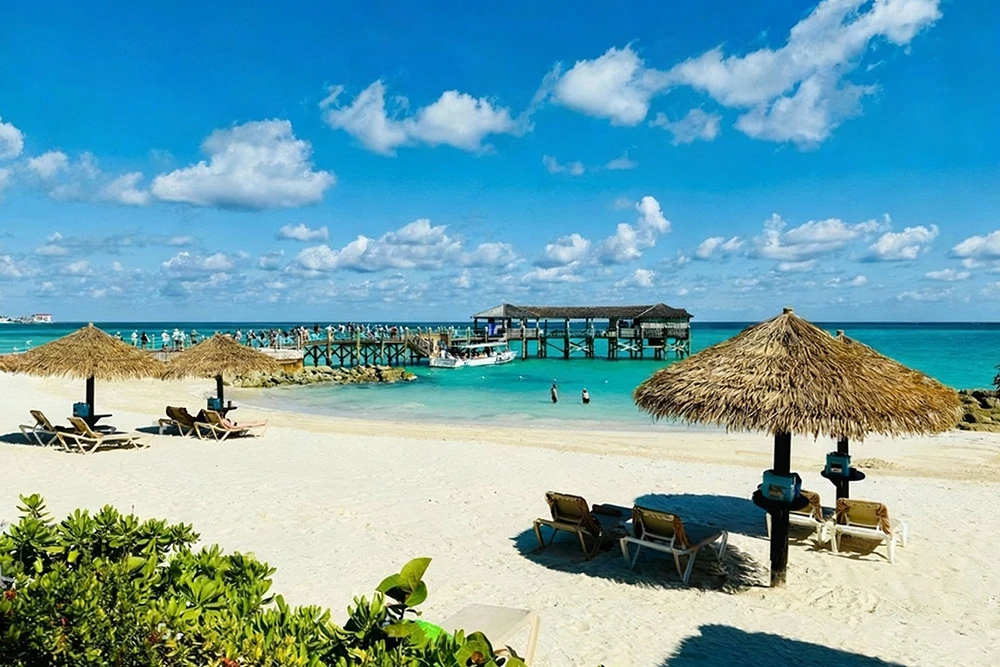
Bahama parrots raise their young in underground burrows
It still startles me, hearing a chirp rise from the soil instead of the trees. The air is bright with salt and resin, a hawk’s shadow slips over the pines, and then there’s this small, steady life murmuring from a dusty mouth in the ground. I remember a faint rush of wings at my ankles, a quick green flicker into limestone powder, and how the noon heat felt softer knowing something tender was tucked below.
On Abaco, the parrots have learned that the cool earth can be a cradle, clever as any engineer. Those burrows shield their chicks from the hard sun and the sudden sweep of hawks, turning danger into shelter with nothing more than dust and time. It feels like the island’s quiet lesson: not everything bright needs to be seen to be safe; sometimes the gentlest place is the one beneath your feet.
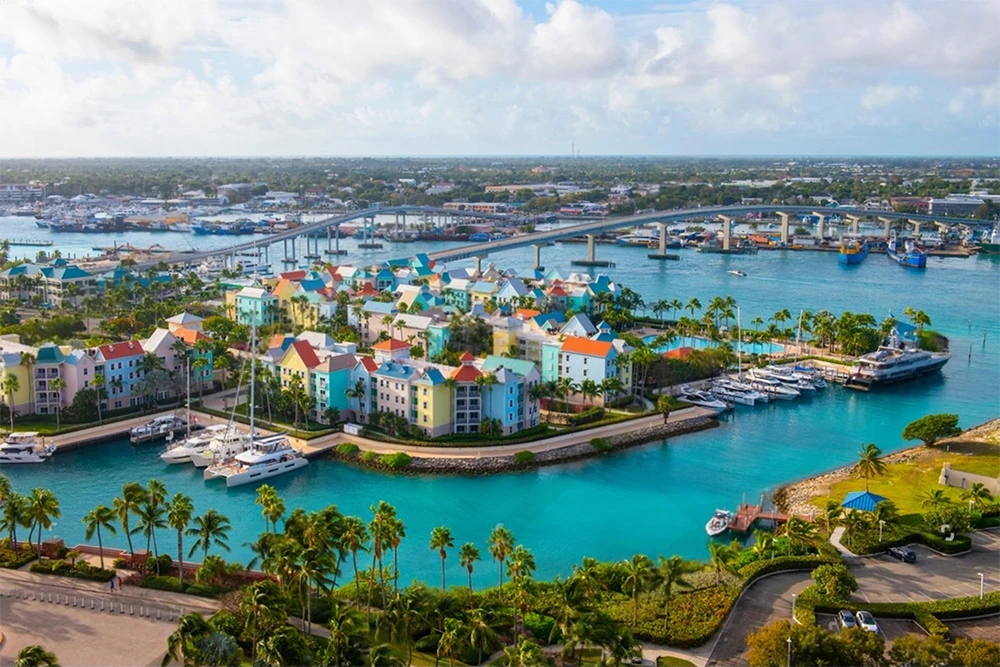
Old palm shutters that breathe better in storms
I remember the hush that comes before a storm, the air salt thick and the light going pewter. That’s when I learned something I didn’t expect: instead of plywood, the neighbors held up bundles of palm leaves and covered their windows, swearing the old ways “breathe” with the wind. It felt both practical and tender at once, like the island taking a slow breath to steady itself.
At first it sounded like folklore dressed as advice, but the sense of it settled in as sure as the tide. The woven fronds let the house exhale without splitting at the seams, and the rooms stayed cooler, less panicked somehow. In Baracoa, elders nodded toward walls that have outlasted more seasons than any new fix, their homes kept safe for generations behind that soft, green shield.
It made me think about trust in things that belong here materials grown under the same sun, methods passed along at kitchen tables and porches. Meeting a hurricane with something that bends and breathes felt brave in a quiet way, and I carried that calm with me long after the sky cleared.
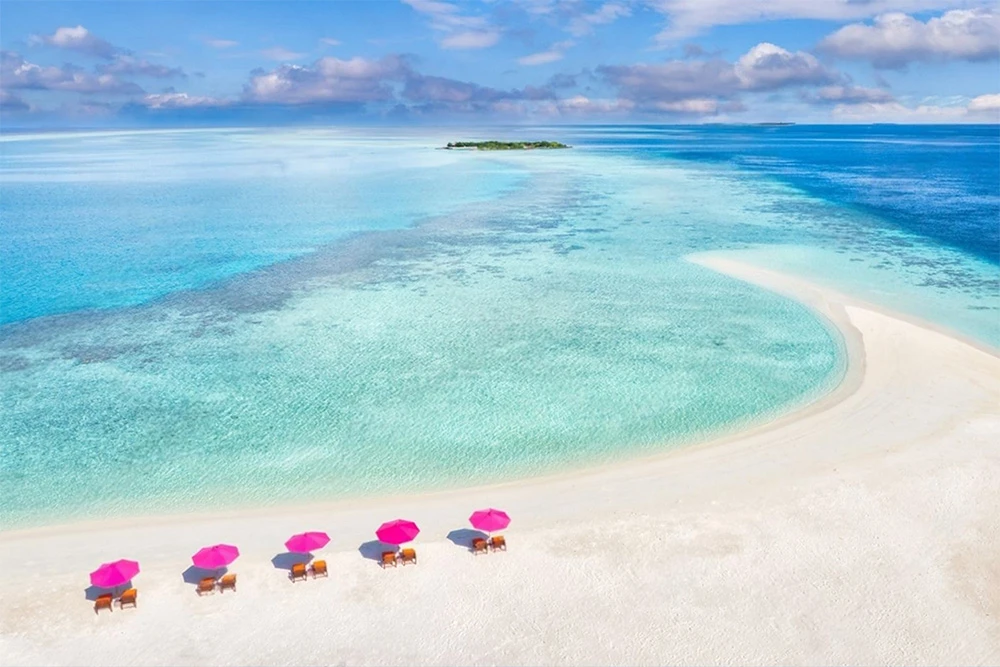
When salt air edits a writer’s pages
I love the audacity of it choosing a life where the sea keeps time for your sentences. Imagine late afternoons glazed with heat, the faint tang of diesel and fish on the breeze, and a line singing somewhere out beyond the reef. Hemingway spent days like that, chasing marlin until his arms hummed, then leaning into the clatter of keys, shaping Islands in the Stream while the horizon burned down to a thin, bright thread. I remember thinking how right it feels when a place isn’t just a backdrop but a co author.
There’s a story that in Bimini his typewriter began to rust before the draft was done, a slow bloom of salt that crept into the letters. It sounds like the island making its own edits soft, stubborn, and honest reminding him that words here have to breathe with the weather. I like that the machine surrendered a little; it makes the book feel less like a trophy and more like something pulled from living water, its keys dulled the way coins look after the tide has had its say.
A hymn for the disappearing Bahama Oriole
I can still hear that thin, mournful note drifting through the palms, the kind of sound that finds you even after the breeze moves on. The locals call it “a hymn for the disappearing,” and when the yellow and black shadow slips between fronds, you understand why. Only two islands cradle this bird, rare as a quiet moment in high season, and somehow that scarcity makes the air feel more fragile, like you’re breathing on something precious.
What moved me most was how the future of the Bahama Oriole hides in the unlikeliest places: abandoned coconut palms, husks creaking, salty sap scenting the dusk, while conservationists keep watch like patient neighbors. It felt so true to The Bahamas beauty and survival trading secrets in the same small space, a thread of song stitching memory to the present. I remember thinking that caring for something you may rarely see is its own kind of faith, a candle cupped against the wind.
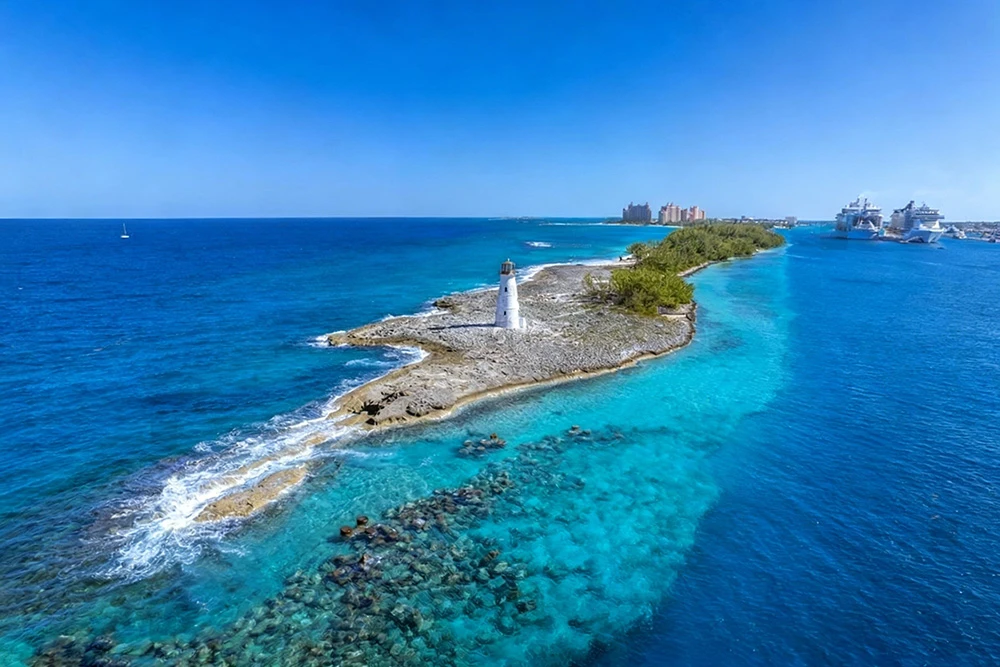
Cracked conch shifts flavor on every island shore
I learned fast that picking a favorite is risky. One paper plate hums with pepper heat, another glosses the shellfish in butter so soft it feels like a lullaby, then somewhere else a squeeze of lemon snaps everything awake. In the Bahamas, the fryer crackles behind a wooden shack, sea salt clings to your lips, and everyone swears their way is the way like dialects of the same sea, each bite speaking with its own accent.
There’s an unspoken rule whispered between bites: don’t crown a champion unless you’re ready for a good natured storm. I once started to compare and caught a grin from a cook that said, easy now. And honestly, that’s the charm letting each island tell its story through the plate, tasting pride and weather and memory all at once. You don’t choose sides here; you listen, and the conch answers back in three delicious voices.
An underwater museum claimed by coral and memory
I still remember the hush, the way the sea seemed to hold its breath when the figures appeared divers, children, a band of musicians rising from the pale sand like a quiet parade paused mid step. Light slid down in silver sheets, painting their stone faces soft and kind while tiny fish stitched bright threads through the stillness. Coral had begun to button their sleeves and bead their shoulders, as if the ocean were dressing them for its own ceremony. It felt eerie and tender at once, this museum where the docents are parrotfish and the plaques are patches of sea grass.
What surprised me most was how human it all felt. The children looked as if they were listening, the musicians as if a song might lift at any moment from a conch shell’s throat. Off Nassau’s coast, the water seems to welcome anything that’s willing to be transformed, and these statues are learning the ocean’s language word by patient word. I left thinking about how places take care of what we leave behind; some cities build monuments, but here the sea builds them back, turning stone into shelter, art into a quiet chapel of salt and light.
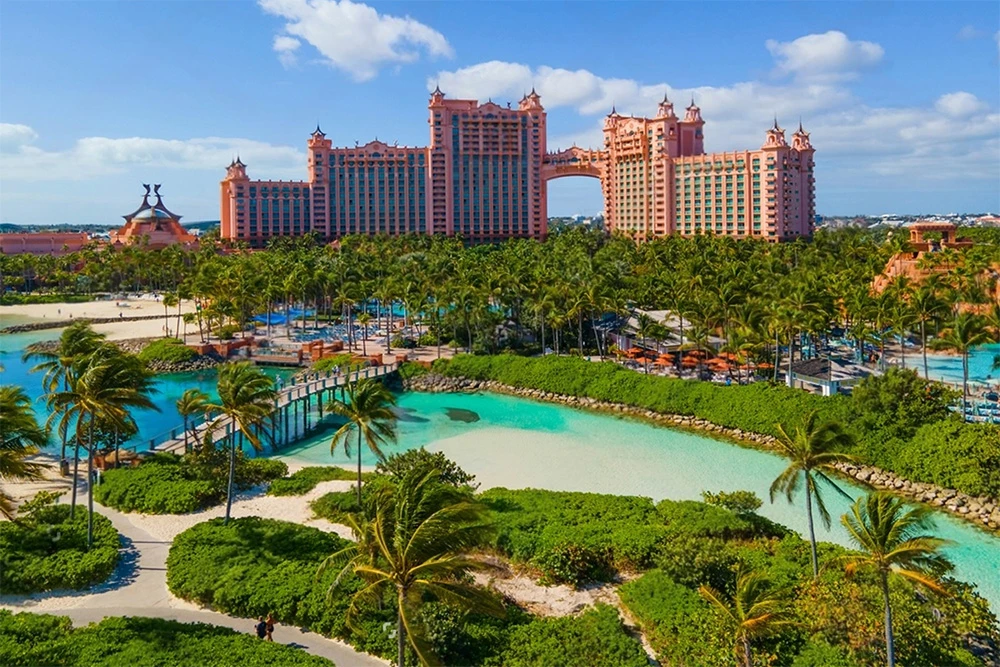
A beach that sings with the tide's breath
I didn’t believe it at first the idea of a shoreline that actually whispers. But when the waves rolled in and slipped back, the sand answered with a faint hush hush, a dry, silvery rustle. It’s the quartz and coral grains rubbing together under the water, locals said, and once you hear it you can’t unhear it. The sound is small but insistent, like wind turning pages, and it seems to hover just above your ankles as the sea settles around them.
They call it the island’s breathing, and that name fits the way it slows your own. On Eleuthera, I remember standing still while sunlight skimmed the shallows and a salt sweet breeze brushed my face, and the beach kept breathing soft, steady, patient. It felt like the place was quietly alive, coaxing you to listen harder and speak less, until the ordinary sea felt newly intimate and kind.
Swimming before walking, reading maps in stars
What got me first was how the little ones move through the shallows, fearless and laughing. In the Bahamas, some kids learn to swim before their legs feel steady on the sand, and somehow it feels perfectly natural. The water is warm, the air salty sweet, and the beach is loud with the kind of laughter that travels far. The sea is their first classroom – no walls, just tide and light.
I remember one night hearing a teacher’s voice drift over the water, naming stars while kids answered back, bright eyed even in the dark. Navigation is part of school here, a quiet salute to grandparents who fished by moonlight and memory. The constellations are old roadmaps, and following them keeps the past within reach while the future feels big and open, somewhere between the hush of the waves and the steady point of Polaris.
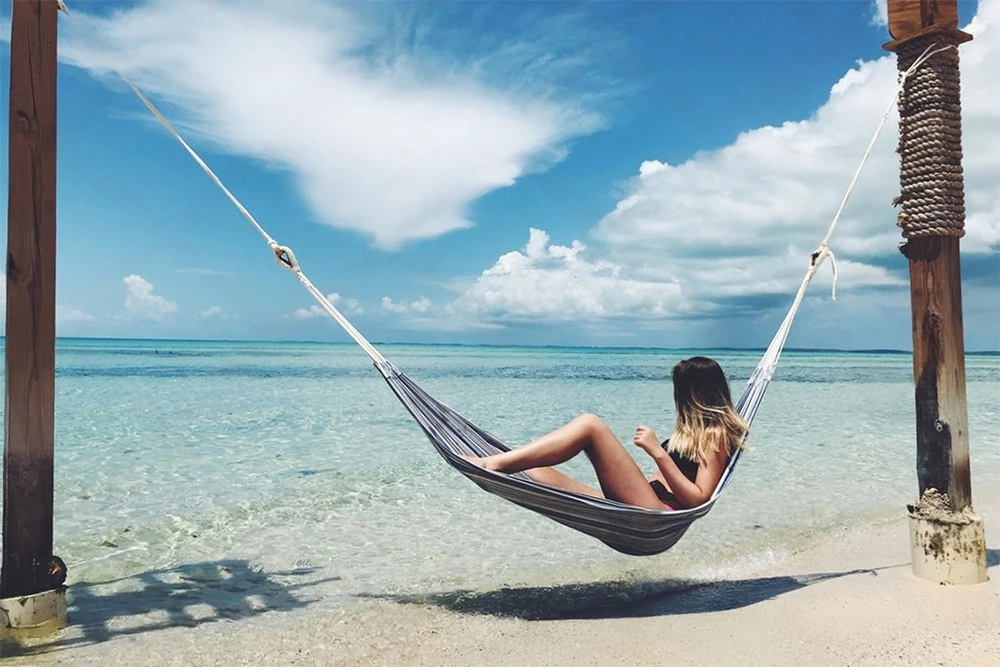
Here, love stays discreet under the brightest sun
It surprised me at first – in a place drenched in light, affection is kept in the shade. The older islands carry a soft hush that makes you lower your voice without meaning to. A lingering kiss on the sand earns a raised eyebrow, sometimes even a quiet warning; not scolding, just a reminder that romance is private, not a show. The air smells of salt and guava, the breeze warm on your skin, and you learn that the only public heat belongs to the weather.
Once, in the slack tide afternoon, I watched couples talk with their shoulders almost touching, their laughter low, and it felt tender – like the ocean asking for calm. In the Bahamas the rule of thumb is simple: sunshine, yes; scandal, no. People keep affection gentle out in the open, a nod to elders and Sunday best, and somehow the whole place seems to breathe easier for it.
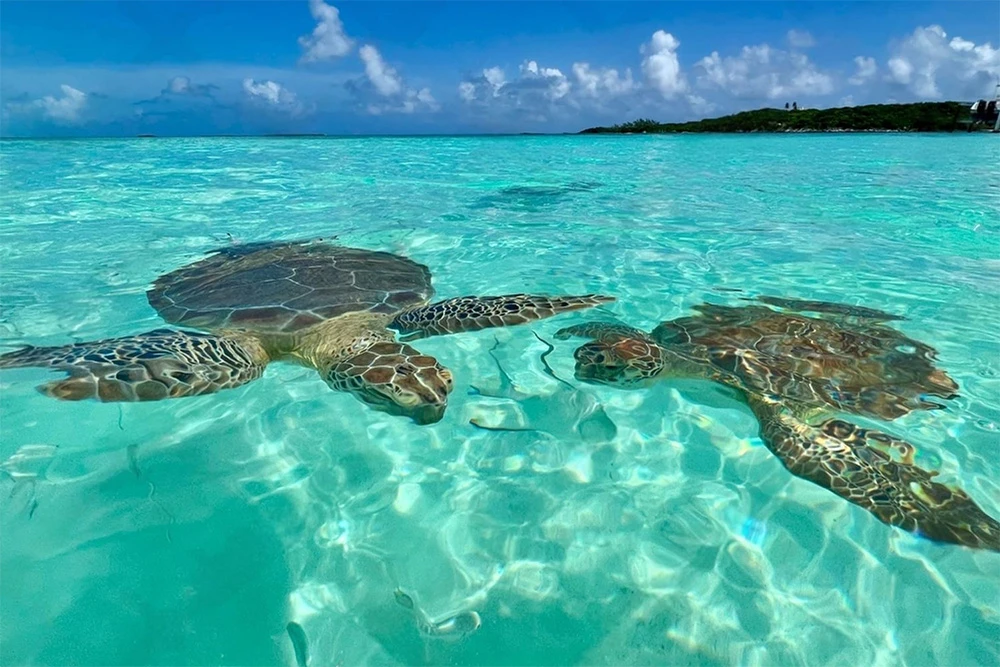
Peaceful independence, with the queen on their cash
It still makes me smile how a place keeps jokes in its money. I remember a breezy corner shop where the bills felt crisp and coins were warm from the sun; the cashier tapped a dollar and called Queen Elizabeth “our longest tourist,” with the kind of fondness you save for a regular who never makes trouble. Only in the Bahamas could independence wear a grin like that.
In 1973, independence arrived quietly, like a tide that knows its way home. Yet for decades her profile lingered in pockets and bus fares, tucked between salt air and grocery lists, part of the daily hum. Even now, some people still use that nickname, not out of loyalty so much as a soft habit of the heart – the way these islands hold past and present lightly, like a seashell you forget you’re carrying until it sings against your keys.
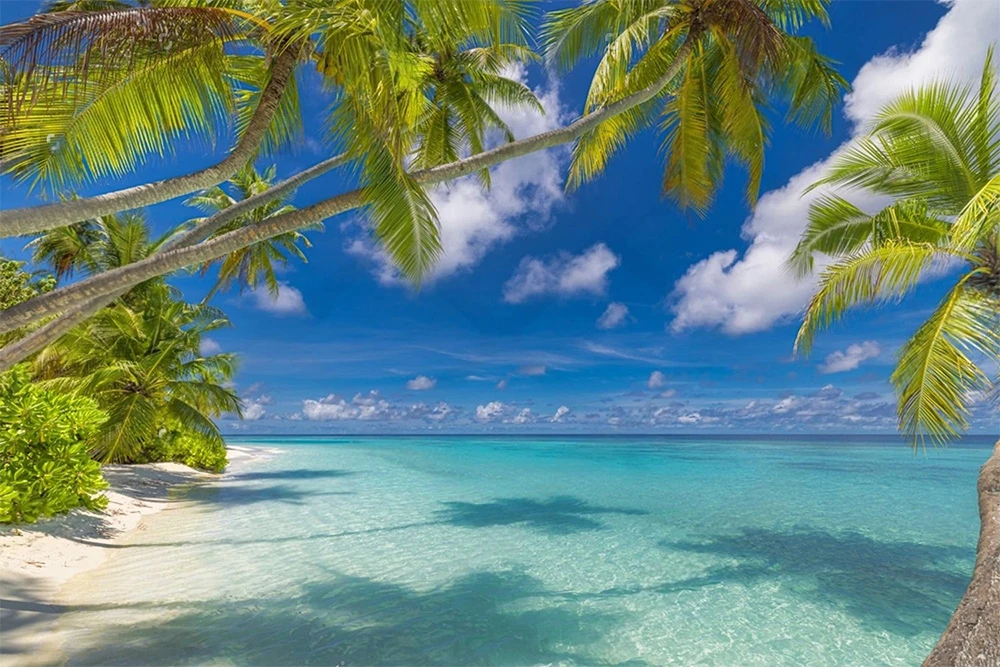
Left side roads meet American steering wheels, daily
The first time I slid into a taxi, I needed a second to make sense of it. The wheel sat on the left like back home, but the lane flowed the other way, sun glazing the windshield and salt in the air. The driver eased out with the calm of someone raised to read wind and water – a quiet trust that the gap will open, that eyes will meet and say go.
That’s the quirk I love about the Bahamas: they drive left, yet so many cars arrive as American imports. It means half the island leans on small kindnesses – a passenger murmuring “clear,” a tap of the horn, neighbors leaving wide, unhurried space at roundabouts. Once, riding a jitney, I realized the whole system feels like a gentle trust fall: not reckless, just communal. And somehow it fits the place; it teaches you that life softens when you expect cooperation around the bend.
Sharks orbit at the ocean’s quiet heartbeat
Some places feel like a held breath. Off Andros there’s a perfect circle of cobalt that falls open beneath you, the Lost Blue Hole, and along its rim sharks move in measured arcs, silver backs flashing and fading as the light drifts. The water goes cool and hushed in that shade, and the whole scene settles into a careful calm, as if nothing there is in a hurry.
People will tell you the pattern is just feeding, neat and efficient; others swear it’s the ocean’s heartbeat, gathering the faithful. I remember nodding at both truths, because watching those orbits makes you feel the sea keeping its own time, older than us, patient and sure. It’s strangely peaceful – a circle of predators creating a quiet – and you carry a steadier pulse afterward, as though the deep had shared its rhythm for a moment.
Sea dreams mean someone is thinking of you back home
It’s funny how a nap can carry a message you didn’t expect. Locals say if you doze on the sand and the sea drifts into your dreams, someone back home is thinking of you. I remember waking with salt on my lips, skin dusted in warm sugar sand, palms swaying like a slow clock, and the thought felt true like a letter slipped under your eyelids while you slept.
Whether it’s the salt air, the hush of the tide, or pure folklore, those beach naps change you a little. You get up softer at the edges, suddenly aware of who tugs at your heart from far away. That’s the quiet magic of The Bahamas: amid the turquoise and the slow afternoons, the islands stitch a gentle thread between you and home, and you carry it with you long after the sun leans west.
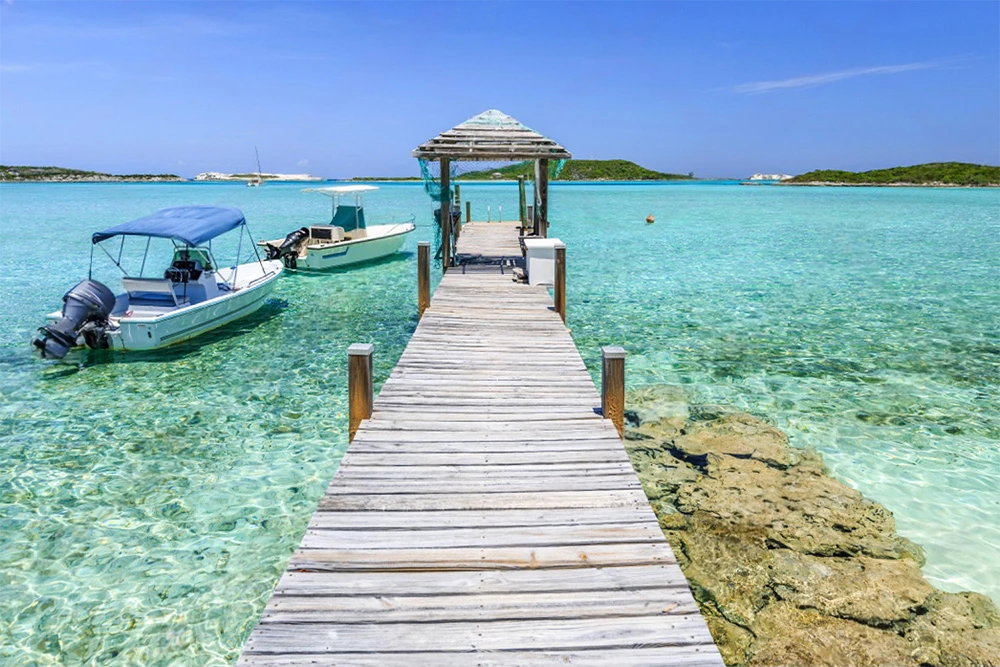
Final thought
In the end, it’s the small, unspoken moments that reveal the soul of the Bahamas – the warmth of a greeting, the hush of the sea at dusk, the quiet pride woven into everyday life. Beyond the color of the water or the shimmer of sand, there’s a deeper rhythm that never leaves you. It feels like the islands breathe in stories and exhale kindness. And maybe that’s the truest part of the Bahamas – it doesn’t ask to impress you, only to stay with you, gently, like the sound of waves that never really fade.
